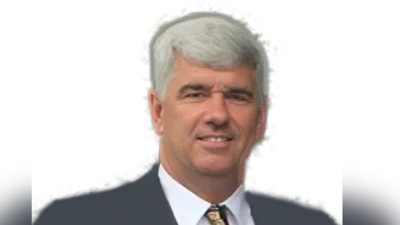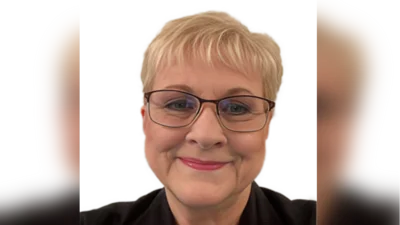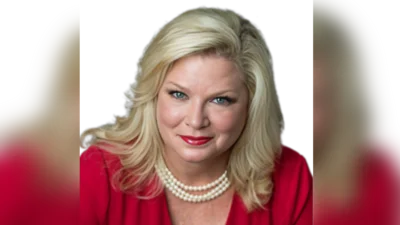Lovett School issued the following announcement on May 16.
“The sooner in life people are having these conversations the more comfortable they will feel and support others.”
During the competition for next year’s SGA presidency, both candidates lead their campaigns with strong statements about Lovett students' Mental health. It certainly increased our curiosity about how Lovett students manage their anxiety and stress.
“I think mental health should be focused on a lot more at Lovett,” says Vice President Noah Claxton, “as it is often overlooked and it affects students' grades and athletic performance. You can see withdrawal when students are overworked and overloaded. When most students feel like this it shows that mental health isn't focused on as much as it should be, but there are improvements being made constantly every year.”
We went around the high school, ready to interview students about what stresses them out the most in and out of school.
Many students, as you might imagine, talked about academics. Sophomore Abigail Weeden said that exams stress her out. Sophomore Christian Bell said that the general idea of succeeding and doing well stresses him out, and freshman Sophie Hatfield said, “The homework load we have and having so many tests and quizzes to prepare for.
After hearing about what stresses students out, we wandered into the school counselors’ office searching for their advice for these students.
“Anxiety varies from individual to individual, and you have to determine what works for you,” said Ms. Mehta.
Ms. Stadler talked about how managing your stress levels will help manage your anxiety. Managing your stress levels includes participating in activities that maintain healthy mental and physical health. For freshmen, during PE we have units with the guidance counselors. In one session we focused on breathing exercises and guided imagery.
Ms. Mehta spoke about having a good music playlist to calm your nerves.
The counselors in the upper school really stressed the idea that managing mental health is crucial for students' academic careers.
We were then curious about how other parts of the school handle mental health, the middle school, and lower school.
We talked with the lower school counselor Daena Shearer about how she deals with mental health in the lower school. She said the main goal is for her to teach the lower schoolers how to “manage how they feel emotionally and how they treat others.”
Regarding managing the lower schoolers' emotions Ms. Shearer says she teaches the kids different coping skills. She said “coping skills are different for every student” so she gives the kids worksheets to figure out what skills work best for them.
It is important to find coping skills for these kids because a lot of them are showing signs of anxiety. Ms. Shearer says she informs the kids that anxiety is a normal thing to go through, but she teaches them how to not be suffocated by it.
In the lower school around 5 students come to Ms. Shearer a day to talk. She has 17 students on her schedule that she meets with regularly. She said the most common topic students come to talk to her about is our friendships. She said that since the pandemic kids have struggled more with their social skills. “When these young kids get a social response they do not want they completely shut down,” she said.
In the lower school, the counselors hold workshops for the parents. Recently Ms. Shearer said there has been “a trend of students accusing other students of bullying.” The parents did not understand what bullying was so there were workshops that helped to inform the parents about what was going on. The goal of the workshops was to teach the parents how to help their students “build their self-esteem and self-advocacy.”
We all know the middle school years can be a tough time, so after interviewing the lower school physiatrist, we spoke with the middle school boys' counselor, Mr. Veselsky. The first question we asked was how he addresses mental health students. “Mrs. Friedman and I, the other middle school counselors, have classes, so we meet with students in the 6th, 7th, and 8th grades, and we meet with those classes once a month,” he said. “In addition to that, we meet with students individually.”
Mr. Veseslky then went on to explain what they teach in these classes. “We talk about how stress manifests in students, and we practice healthy coping strategies. This includes meditation and deep breathing, and we go over these exercises. Around exam time we talk about test anxiety. We also talk about awareness, specifically discussing mental health conditions such as anxiety, and depression, what OCD is, and what eating disorders are.”
They also talk a lot about interpersonal relationships. “This includes how we relate with others, healthy and unhealthy friendships, how to handle peer pressure, and how to handle peer conflict appropriately,” he said. “Additionally, we talk about the self of esteem and body image.”
After hearing about the curriculum, we realized that middle schoolers have the opportunity to develop strong morals and ideals to help them in the future. When we were middle school students, we remember having these lessons, but never fully appreciating them until later in life when we truly needed to use what we learned.
Middle school is a very vulnerable time for teenagers, as they start to develop negative emotions for themselves after getting a glimpse of how harsh the world can be. Middle school is the best time to mold teens' minds, to help them for the future. As Mr. Veselsky mentioned, it’s never too early to talk about mental health because even at early ages kids can suffer.
“Over the course of this school year, the total combined number of individual meetings I've had is about 450,” said Mr. Veselsky.
Taylor and I made sure to note in each division how often students come to visit them. We noticed that as kids got older, there was more hesitation to visit the counselors. Even interviewing students in the high school, when we asked whether they visit the school counselor the answer was often no. Students told us they thought some still feel there is a stigma attached to mental illnesses. Sometimes when visiting counselors there can be a sense of shame or embarrassment. They also said teenagers have a tendency to either ignore the emotions they may feel or feel skeptical about reaching out for help.
When we shared this with Ms. Mehta and Ms. Stadler, they said there was nothing to be afraid of. “We are always kind, patient, welcoming, everyone is welcomed at any time if they need help,” said Ms. Stadler.
“Literally everyone experiences mental health issues,” Ms. Mehta added. “That is a part of being human, that we feel anxious at times. Sometimes we just need some suggestions on what to do and it's not a big deal to come in and talk to us.”
Mrs. Stadler jokingly said, “It’s not going on your permanent record, coming in and talking to us.”
On a more serious note, they talked about the privacy students receive when coming to talk to them.
“Nobody needs to know,” said Ms. Stadler.
Lovett counselors across divisions do talk to each other, holding K-12 counseling meetings twice a month. Sometimes they share cases with each other to get advice. They also connect with schools within the neighborhood about certain cases and for advice, without sharing names.
A new mental health initiative at Lovett is actually led by students. The mental health liaisons are a group of students who work together to create solutions to better benefit Lovett students' mental health.
We spoke with one of those liaisons, freshman, Milan Barnes.
“I know a lot of people who struggle with mental health,” she said, “and I wanted to help the Lovett community to better fit their needs.”
She said the liaisons assess each grade's mental health, to see how they can accommodate students' needs. This year they put together a presentation for administration and faculty based on an anonymous survey they sent out to students. They had the opportunity to share their data with all the department heads of the high school.
“I really enjoyed being able to present all of our hard work to the teachers,” Milan said. “It helped bring awareness to the mental state of the students at Lovett.”
Overall, speaking with the counselors in all divisions and students enriched our knowledge about how Lovett responds to maintaining students' mental health and how students felt in general. No matter who we interviewed, everyone agreed that mental health is extremely important, and they are glad we are the type of school that addresses it.
We realized how much effort teachers put into trying to understand students and help them. Even though there are still adjustments that can be made, the Lovettt community is on the right track towards this progress.
And there’s never an end when it comes to working on one’s mental health.
We asked all three counselors: “What age is the most important to address mental health?” Their responses were very similar.
“Immediately,” Ms. Mehta said, “Mental health is relevant for your whole life.”
“It is never too early to learn about mental health,” Mr. Veselsky said, “The sooner in life people are having these conversations the more comfortable they will feel and support others.”
“Every age is good but the earlier the better,” Ms. Shearer said.
Original source can be found here.






 Alerts Sign-up
Alerts Sign-up